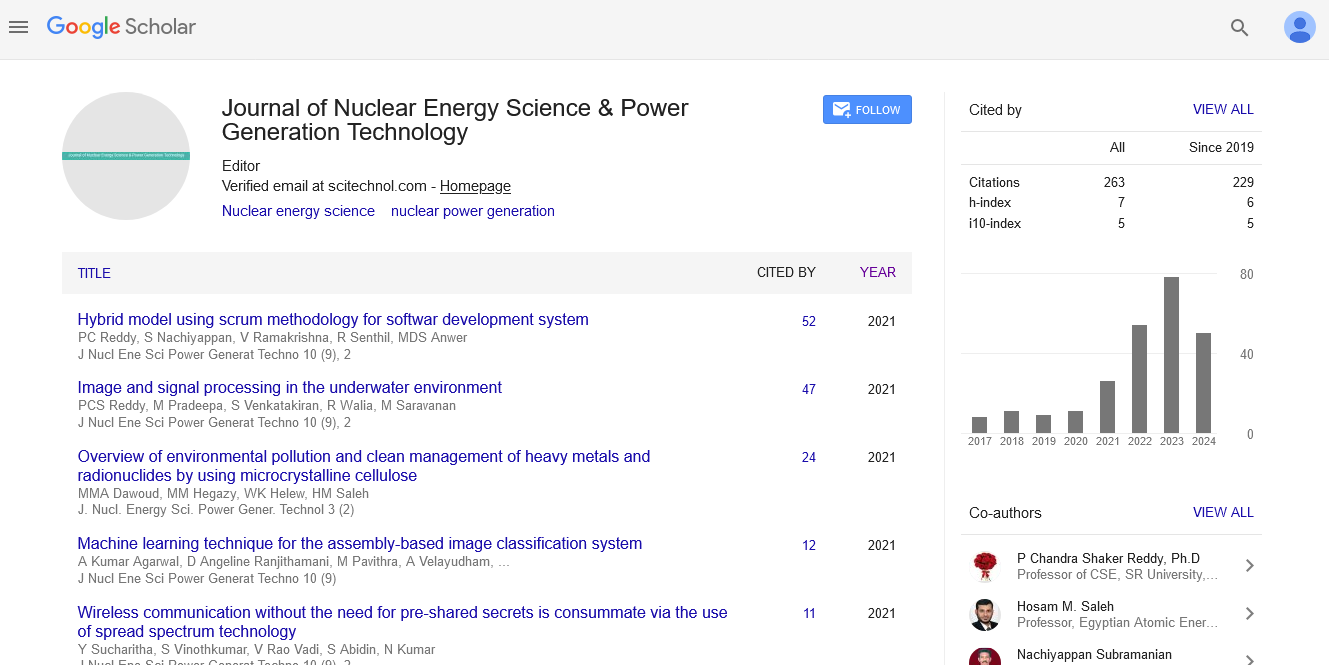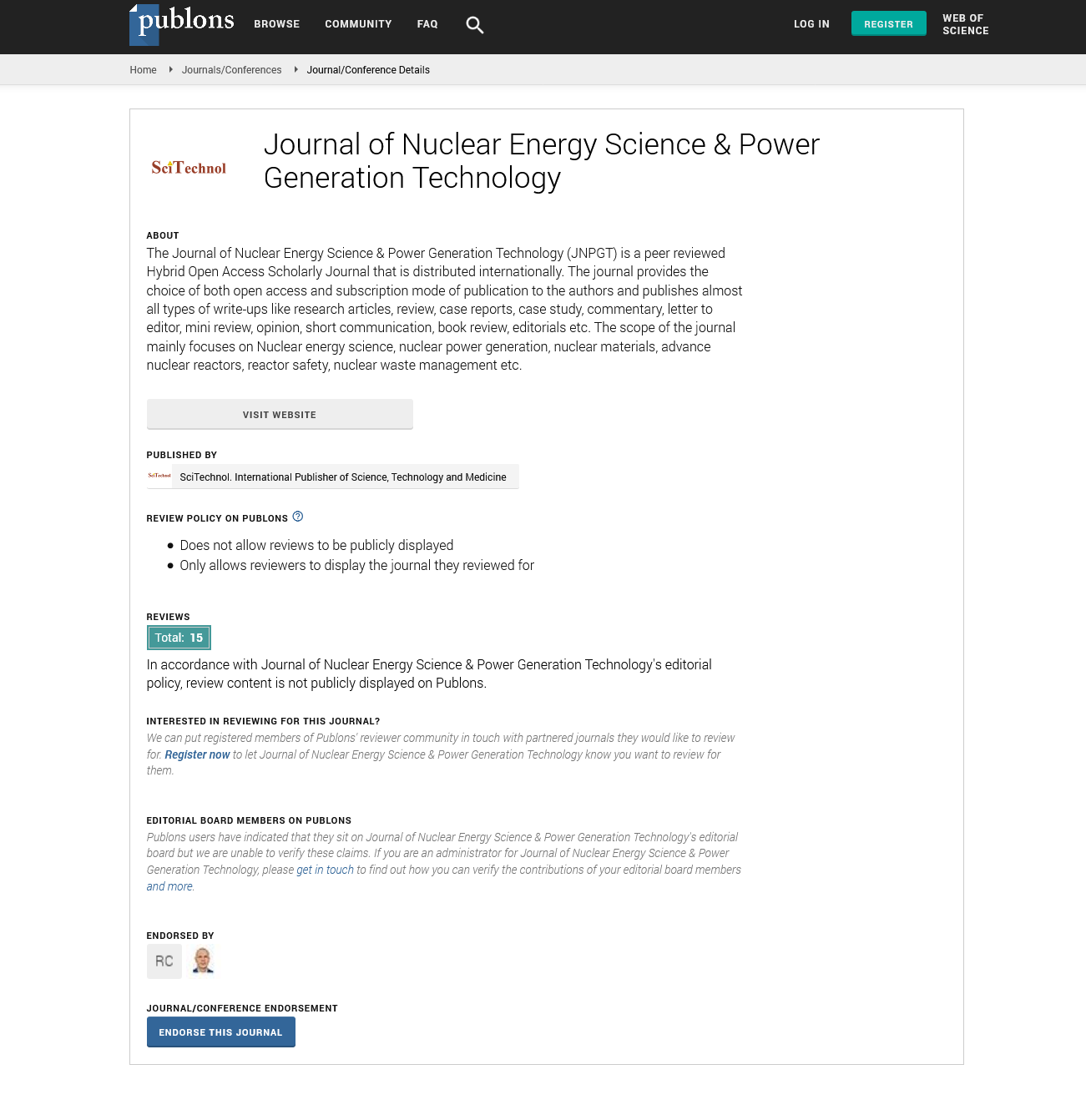Research Article, J Nucl Ene Sci Power Generat Technol Vol: 6 Issue: 2
Lesson Learned from the February 2014 Fire and Radiation Release Events at the Waste Isolation Pilot Plant in New Mexico, USA
Thakur P* and R. Hardy
Carlsbad Environmental Monitoring and Research Center, 1400 University Drive, USA
*Corresponding Author : Punam Thakur
Carlsbad Environmental Monitoring & Research Center, 1400 University Drive, Carlsbad, NM 88220, USA
Tel: 575-234-5531
E-mail: pthakur@cemrc.org
Received: May 02, 2017 Accepted: May 13, 2017 Published: May 20, 2017
Citation: Thakur P, Hardy R (2017) Lesson Learned from the February 2014 Fire and Radiation Release Events at the Waste Isolation Pilot Plant in New Mexico, USA. J Nucl Ene Sci Power Generat Technol 6:2. doi: 10.4172/2325-9809.1000175
Abstract
The recently reopened Waste Isolation Pilot Plant (WIPP) is expected to resume accepting new shipments of nuclear waste from across the DOE (Department of Energy) complex by April, 2017. There was no road map for cleaning up the nation’s only deep geologic repository for defense nuclear waste when it was contaminated three years ago after two accidents in February 2014 shutdown the facility and contaminated 22 workers with very low level of radiation as some radioactive material escaped above ground. The dominant radionuclides released were americium and plutonium, in a ratio that matches the content of the breached drum. According to the source term estimation, the actual amount of radioactivity released from the WIPP site was less than 1.5 millicurie. From the modeling, monitoring, and air filter analyses, DOE calculated public doses from this radiation release event to be less than 0.01 mSv (<1 mrem/year), which is well below the 0.1mSv/year (10mrem/year ) regulatory limit.
The cumulative effect of inadequacies in ventilation system design and operability, compounded by a slow erosion of safety culture and an atmosphere of complacency, resulted in the release of radioactive material from the WIPP underground. The clean-up is expected to cost DOE almost a billion, and with radiological contamination and reduced air flow underground, the regular work of running WIPP is going to be slow and costly. Nevertheless, the lesson learned as a result of these two accidents at the WIPP is worth documenting as it brought renewed focus on risk, oversight, and emergency planning surrounding the nuclear facility. At some point in the future, the changes made in response to these two events will be seen as a valuable lesson learned on behalf of future repository program.
 Spanish
Spanish  Chinese
Chinese  Russian
Russian  German
German  French
French  Japanese
Japanese  Portuguese
Portuguese  Hindi
Hindi 

